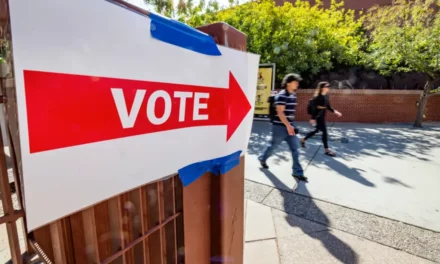We support our Publishers and Content Creators. You can view this story on their website by CLICKING HERE.
Republicans sued because they said letting overseas voters who have never lived in North Carolina cast ballots is unconstitutional.
Overseas voters who have never lived in North Carolina will still be allowed to cast ballots in the 2024 election, after the North Carolina Court of Appeals denied a petition from the Republican National Committee (RNC).
The appeals court also rejected a bid for a temporary injunction.
Republicans have been seeking a ruling declaring a North Carolina law that allows overseas voters who have never lived in North Carolina to vote is in violation of the state’s Constitution. Republicans have also sought a ruling ordering county boards of election to segregate ballots cast by such individuals and not count them.
North Carolina law says that a person whose parent or legal guardian once lived in North Carolina can vote in the state by mail, provided they have never registered to vote in another state.
Voter registration forms issued by the North Carolina Board of Elections includes an option that states, “I am a U.S. citizen living outside the country, and I have never lived in the United States.” That means the board is “permitting unqualified non-residents to vote in North Carolina elections,” the RNC said in a complaint.
The Democratic National Committee, which intervened in the case, and the board argued the current position aligns with the North Carolina Constitution.
The North Carolina Court of Appeals did not issue an opinion detailing why it rejected the RNC’s appeal.

 Conservative
Conservative  Search
Search Trending
Trending Current News
Current News 







